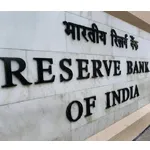
Moody's outlook for Indian banks remains negative
Indian banking credit outlook remains negative reflecting the challenging economic conditions, problem loans, and adverse implications for asset quality.
Moody's outlook for the Indian banking expresses its view on future direction of credit conditions in the industry over the next 12 to 18 months.
The Indian banking system remains largely in the hands of the public sector banks, with almost 72 percent of assets held by majority government-owned banks. The balance is held by private sector as much as 19.6 percent, and foreign banks as much as 8.5 percent.
Moody's main concern about the Indian banking system is the deteriorating asset quality and volume of restructured loans. During fiscal year ending March 2009, the absolute level of gross non-performing loans for all Indian commercial banks increased by 22.5 percent, compared with 11.9 percent the year before.
"Although the NPL expansion must be seen in the context of the problems faced by banks globally over the past couple of years, the rapid expansion of retail lending in recent years, combined with the slowdown of the Indian economy, has led to increased delinquency rates, especially for unsecured retail loans. Concurrently, the future performance of restructured loans will determine the evolution of the NPL trend in India," says Nondas Nicolaides, Moody's lead analyst for the Indian banking system.
Indian commercial banks' profitability has been improving in recent years with core income benefiting from the high lending environment and net interest income rising sharply in FY 2009. However, in the short term, Moody's expects some of the rated entities' profits to be severely affected by the central bank's recent requirement that banks should increase their NPL provision cover ratio to at least 70 percent by September 2010.
For the moment, though, Moody's maintains its positive stance with regard to the rated commercial banks' relatively stable core revenues and sound profitability ratios, which act as a moderately positive rating driver. Moody's contends that Indian banks need to focus on increasing their fee-based income, as this will be the key to improving their quality of earnings and maintaining future profitability. "In particular, more diversified earnings profiles will act as positive drivers for PSBs' bank financial strength ratings," adds Mr. Nicolaides.






![Lorem Ipsum [ABF 1]](https://cmg-qa.s3.ap-southeast-1.amazonaws.com/s3fs-public/styles/exclusive_featured_article/public/2025-03/a_hand_pointing_to_a_futuristic_technology_5b87c9d0e3_1.png.webp?itok=2w0y1WhS)


![Cross Domain [Manu + SBR + ABF + ABR + FMCG + HBR + ]](https://cmg-qa.s3.ap-southeast-1.amazonaws.com/s3fs-public/styles/exclusive_featured_article/public/2025-01/earth-3537401_1920_4.jpg.webp?itok=WaRpTJwE)








 Advertise
Advertise

